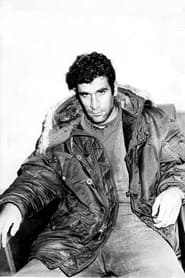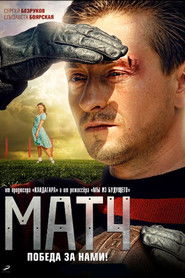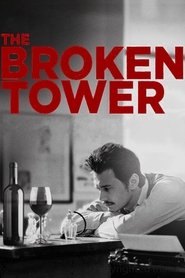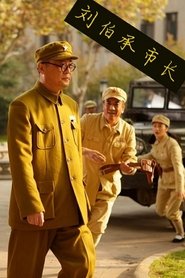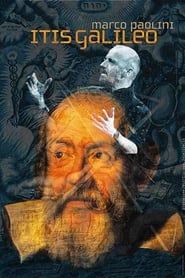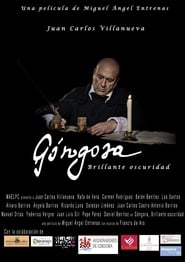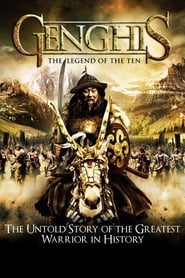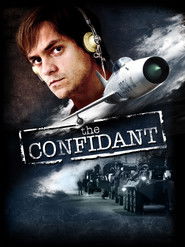New History Movies on Pantaflix - Page 442
-
Brave Bombardier
2012
Brave Bombardier
2012
During the Anti Japanese War (Second Sino-Japanese War), Chen fool joined the Eighth Route Army in order to earn money and marry his wife, and was assigned to Class Two of the Third Company. He is well known as an idiot, is totally incompetent, can't distinguish left or right, He fails to learn how to shoot, and fails to retreat jeopardizing the risk of death for his comrade, and foiling his squad leader plan. He is deemed useless and is the laughing stock of the army. His only advantage is his strong physique and a big stature, thereby he is only assigned a cooking position in the army and only do trite errands suitable for his physique and strength. One eventful day when Chen fool goes to the battlefield to deliver food and meets the Imperial Japanese army, where he is asked to help his comrades fight the devil. An event that will earn him the title, "the brave bombardier", a revolutionary hero, and gain the deserved respect from his comrades and leader. -
To My Wife
2012
To My Wife
2012
A young actress got into a car accident and crossed over to an era 100 years from now and met her lover then. The title was based from a famous letter written by Lin Juemin, an early Qing Dynasty revolutionary, to his wife before his death. -
My boy, look at the stars
2012
star 8February 28 is Deniz Gezmiş's birthday… He would have been 75 years old today; but it only lived for 25 years, and in those 25 years, it had an impact that spanned 75 years. When you have a 25-year-old son, one feels better, what was done to him... -
Match
2012
Match
2012
star 5.1Based on the true story of the "death match" where the Soviet team "Start" scored its second victory over the German team «Flakelf» on August 9, 1942 -
The False Heart
2012
The False Heart
2012
Therese lives in two worlds. As housemaid she has fallen in love with the sophisticated Countess Meta von W. As a young woman of poor/humble descent, she has to watch as her sister Magdalena is being hauled into the abyss by a devilish sectarian. Together with this notorious pastor, Thomas Pöschl, Magdalena conducts exorcisms at her community/in the village. Small children have to renounce Satan, a young woman is brutally exorcized and later proclaimed a saint by Pöschl. -
The Great Cinema Party
2012
star 5.5A group of friends, sharing a passion for cinema, assemble in Corregidor, a small island in Manila Bay that has preserved relics from the Pacific War as its foremost attractions. There, they explore the island and retire in a rustic mansion used once to make silent films. Outside the city, the woods and sea become a meeting place for more movie personalities and it all becomes a celebration of what was left behind. -
Time Zero: The Last Year of Polaroid Film
2012
star 6.8Documentary covering the end of an era as Polaroid stops producing its signature cameras and film as well as The Impossible Project to keep instant photography alive. -
The Broken Tower
2012
The Broken Tower
2012
star 4.7Docudrama about American poet Hart Crane, who committed suicide in April 1932 at the age of 32 by jumping off the steamship SS Orizaba. -
Gallipoli from Above
2012
Gallipoli from Above
2012
star 8Gallipoli from Above: The Untold Story is the true story of how a team of Australian officers used aerial intelligence, emerging technology and innovative tactics to plan the landing at Anzac Cove. It is now nearly 100 years since the landing and hundreds of books, movies and documentaries have failed to grasp the significance of the ANZAC achievement. Instead, the mythology has clouded the real story of how these two influential Australian officers took control of the landing using every innovation they could muster to safely land their men on Z beach. -
刘伯承市长
2012
刘伯承市长
2012
Liu Bocheng’s short but impactful time as the first mayor of Nanjing in 1949 where he showcases his dedication to the city's development and his strong bond with the people during a crucial period in history. -
ITIS Galileo
2012
-
Abstract
2012
Abstract
2012
Abstract (2012) is a return to the contested narrative of Andrea Wolf’s death, with Steyerl traveling to Kurdistan in search of information about her friend's murder. The work links cinematic shooting and military warfare together, implicating Germany’s role in the operation. This has been screened in the past as a dual-channel work. But in this case it has been re-purposed by the artist as a split screen film. (KG) From e-flux: Abstract presents a scenario in which the violence of warfare and the violence of aesthetics twist around each other. The two-channel video visits the site where Steyerl’s friend Andrea Wolf was killed in 1998, but through a prism that refracts cinematic language against the weapons that killed her friend. As the site and circumstances of her death fold into the act of witnessing it from a distance, the ethical burden of identifying those responsible also appears to live and die with the debris that still remains at the site of the helicopter attack. -
Genghis: The Legend of the Ten
2012
star 5.4A little known fact is that Chinggis Khaan, better known as Genghis Khan, would collect orphans from his bloody battlefields and have his own mother raise them. These adopted brothers grew up to become his most loyal officials and advisers. Khaan organised his Mongol soldiers into groups according to the decimal system. Soldiers were arranged in units of 10 ("aravt"), 100 ("zuut"), 1,000 ("minghan") and 10,000 ("tumen"). Each unit had an appointed leader reporting to a larger unit. A 10-person "aravt" unit is ordered by Khaan to locate a skilled doctor who lives in a forest. En route, they discover an abandoned baby. He is in fact the child of an enemy warrior who gives pursuit, even though they have saved the child's life. Whilst protecting the child from attacks from enemy soldiers, the members of the "aravt" must also complete their mission. Through their actions, they demonstrate the benevolence and bravery of Mongol warriors as the final battle closes in. -
Eastern Bandits
2012
Eastern Bandits
2012
star 6Movie is set during a period of time when Japanese invaded China. The story is told from Gao's perspective, a soldier seeking revenge from the Japanese in trying to assassinate the visiting Japanese chief in command. In the process of plotting such scheme, he had a chance encounter with a local Mafia, lead by its charismatic leader Fang. Fang had a bandit of followers, of which one is Fang's sister. Fang in the past have rescued many of these followers using his own blood and as a result all the members in the bandit formed a life long bond and friendship. When Gao realizes he could use the firearms and man power of Fang's bandit, he sets up a scheme to get captured by Fang on purpose. When Fang found out - he was extremely angry and upset and almost killed Gao, but Gao is saved by Fang's sister because she clearly developed feelings for Gao after seeing how he fared during the interrogation phases when he was in Fang's capture. -
Badhshala
2012
Badhshala
2012
star 8Badhshala is a story of torture inside an army barrack during maoist insurgency. -
The Real Great Escape
2012
For the first time, the true story of the mastermind behind World War II's Great Escape is told by his niece, Lindy Wilson. Squadron Leader Roger Bushell was a young London barrister, an auxiliary pilot and a champion skier when he was shot down and captured early in the war. He escaped three times and, in spite of the Gestapo's threat to shoot him if he ever escaped again, Bushell accepted the role of 'Big X' on his return to the top-security PoW camp, Stalag Luft 111. After 18 months of preparation, one of the greatest escapes of the war took place. Their aim to distract the enemy succeeded, as it was estimated that five million Germans were deployed to recapture the 76 escapees. However, Hitler's rage was uncontainable and he personally ordered a terrible reckoning. (Storyville) -
The Confidant
2012
The Confidant
2012
star 5.4New husband Adam reluctantly takes a job with state security in a totalitarian country, thus becoming a secret police agent. This "contract with the devil" helps secure a flat for the happy couple, as well as a prosperous future. However, he soon finds out that he too is under surveillance. -
La sombra azul
2012
La sombra azul
2012
star 3.3Argentina, 1976. With the beginning of the military dictatorship, a young police officer is accused of belonging to the ERP guerrilla group. He is tortured by his former colleagues and held as a political prisoner for two years. He survives the brutal prison conditions and is released on parole, but a few months later decides to escape the country. Denmark grants him asylum, and he lives in Copenhagen for fifteen years. When he returns, now a democratic country, he discovers that some of those who tortured him were not only still police officers but high-ranking officials. -
SOS: The Titanic Inquiry
2012
star 6.4The true story of the official Inquiry into the Titanic disaster. Was a ship called The Californian close enough to have saved them?
 Netflix
Netflix
 Amazon Prime Video
Amazon Prime Video
 Apple iTunes
Apple iTunes
 Apple TV Plus
Apple TV Plus
 Disney Plus
Disney Plus
 Google Play Movies
Google Play Movies
 Paramount Plus
Paramount Plus
 Hulu
Hulu
 HBO Max
HBO Max
 YouTube
YouTube
 fuboTV
fuboTV
 Peacock
Peacock
 Peacock Premium
Peacock Premium
 Amazon Video
Amazon Video
 The Roku Channel
The Roku Channel
 AMC+
AMC+
 Kocowa
Kocowa
 Hoopla
Hoopla
 The CW
The CW
 Vudu
Vudu
 Starz
Starz
 Showtime
Showtime
 PBS
PBS
 Pantaflix
Pantaflix
 FXNow
FXNow
 Tubi TV
Tubi TV
 Kanopy
Kanopy
 Comedy Central
Comedy Central
 Crunchyroll
Crunchyroll
 Microsoft Store
Microsoft Store
 Redbox
Redbox
 Sun Nxt
Sun Nxt
 ABC
ABC
 DIRECTV
DIRECTV
 Crackle
Crackle
 Fandor
Fandor
 Plex
Plex


